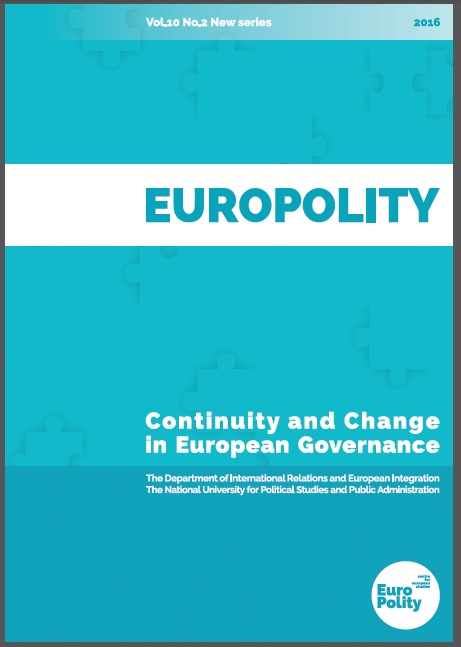ALEXANDER DUGIN AND MOSCOW’S NEW RIGHT RADICAL INTELLECTUAL CIRCLES AT THE START OF PUTIN’S THIRD PRESIDENTIAL TERM 2012-2013: THE ANTI-ORANGE COMMITTEE, THE IZBORSK CLUB AND THE FLORIAN GEYER CLUB IN THEIR POLITICAL CONTEXT
ALEXANDER DUGIN AND MOSCOW’S NEW RIGHT RADICAL INTELLECTUAL CIRCLES AT THE START OF PUTIN’S THIRD PRESIDENTIAL TERM 2012-2013: THE ANTI-ORANGE COMMITTEE, THE IZBORSK CLUB AND THE FLORIAN GEYER CLUB IN THEIR POLITICAL CONTEXT
Author(s): Andreas UmlandSubject(s): Politics / Political Sciences, Social Sciences
Published by: Scoala Nationala de Studii Politice si Administrative (SNSPA)
Summary/Abstract: The relatively large attention that Alexander Dugin and his “neo-Eurasian” followers have received in international post-Sovietology and Russian right-wing extremism studies, over the last two decades, is unusual, but justified. Dugin represents for both, analytical and political reasons, a more interesting case than his various ultra-nationalist competitors on the book market, in mass media, and within the public discourse of post-Soviet Russia. Not only has he distinguished himself by his bold incorporation of West European inter- and post-war right-wing extremist ideas – including classical German Nazism – into his post-Soviet Russian fascist ideology. By today, he is one of the few still active veterans of the Soviet Union’s occult underground, entering the Iuzhinskii circle in the early 1980s (Menzel 2013, 195-228, Laruelle 2015b, 563-580). Later on, Dugin was, for a short period in 1988, a member of late Soviet Russia’s first openly ultra-nationalist grouping, the infamous so-called Pamiat’ (Memory) Society. Already in the early nineties, Dugin became a prolific post-Soviet publicist whose first articles, in particular his columns for Russia’s leading ultra-nationalist weekly Den’/Zavtra (The Day/Tomorrow), helped to shape the overall world-view of the then emerging new Russian extreme right. This paper will, first, outline the overall background, determinants, and context of the type of non-party activities that, among others, Dugin is engaged in. The argument focuses on both Dugin’s specific strategy, on the side, and the general meaning of right-wing extremist activism outside the electoral realm, i.e. within so-called “uncivil society,” on the other. The paper, secondly, illustrates these general observations by way of continuing Marlene Laruelle’s (2009) and others’ (including my own, Umland 2007) research on post-Soviet Russian right-wing extremist clubs and think-tanks. The focus here will be on three new such creations, in which Dugin has been taking an active part, and which have come to prominence since the announcement of Putin’s return to the Russian presidency in September 2011. In the conclusions, I argue that the development of Russian right-wing intellectualism may currently be entering a new stage, in terms of its consolidation as a movement, as well as penetration into the state and society.
Journal: Europolity - Continuity and Change in European Governance
- Issue Year: 10/2016
- Issue No: 2
- Page Range: 7-32
- Page Count: 26
- Language: English

